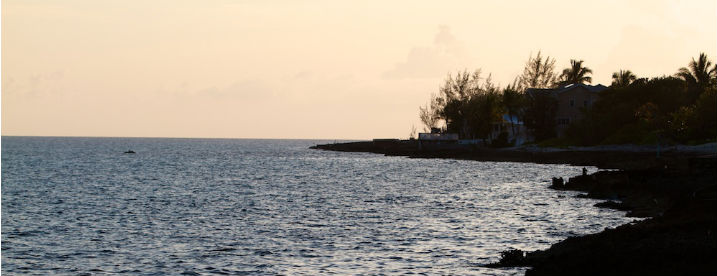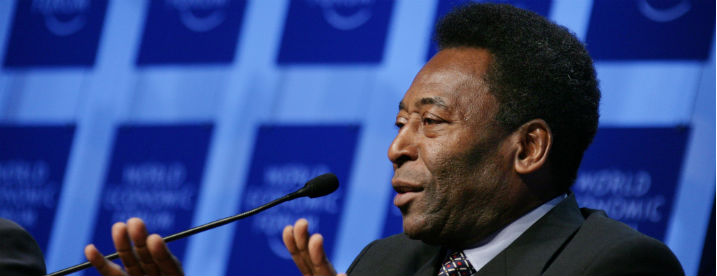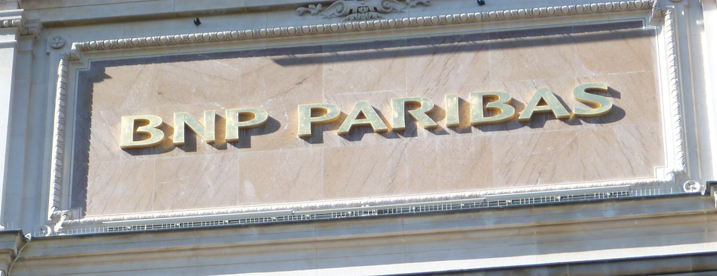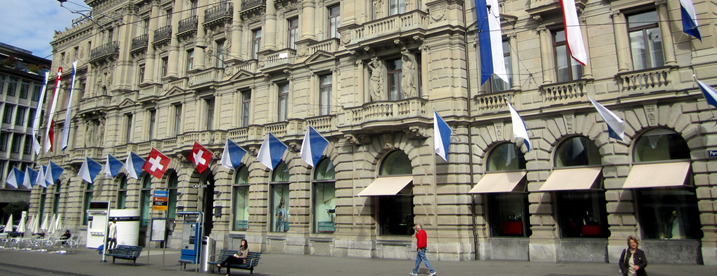By Michele Fletcher, June 11, 2014

Boko Haram developed from social unrest, poverty, and a strong disillusionment with the corruption of the Nigerian government. Today, the same factors make Boko Haram lethal.
Nigeria’s rampant corruption has left the nation unequipped to deal with security concerns, especially along porous borders through which Boko Haram receives immense support. A look at one of their videos reveals an immense amount of weaponry that is not only costly, but very difficult to obtain.
Boko Haram is capitalizing on the destitute and weak areas in the north of Nigeria to extract money from civilians, as well as financial opacity to receive funding from international criminal networks, and channel it towards arms acquisition from abroad: one of many examples of the inextricable link between financial concerns and national security.
By Michele Fletcher, June 10, 2014

On Wednesday, representatives from the Senate, European Embassies of Luxembourg, the Netherlands, and anti-corruption NGOs, including GFI’s Tom Cardamone, gathered in the U.S. Senate’s Kennedy Caucus Room to discuss the growing dangers of illicit financial flows in Europe as major contributors to the European financial crisis.
U.S. Senator Jeff Sessions (R-AL) spoke about his experience with Russia’s systematic aggression in the Balkan areas, and advised they take a stronger stance against Russian encroachment. Dependence on American financial and military hegemony in the region is not a sustainable security solution, he added. Sessions, who also served as Attorney General of Alabama, urged that Central and Eastern Europe push for anti-corruption and transparency laws.
I am convinced that prosperous and open societies make the world better. The values of financial integrity are exactly what we need.
All agreed that financial integrity is the linchpin of stability and security. Hon. Becky Norton Dunlop, Vice President of the Heritage Foundation, said:
Ensuring transparency is key to dealing with corruption.
This is not just a Republican issue. This is not just a Democratic issue; this is an issue for all Americans.
The crisis in Crimea was preventable, argued Natasha Srdoc, Chairman of the Adriatic Institute for Public Policy. Regional stability is greatly undermined by Western European banks promoting fraudulent transactions in the Balkans. Had Ukraine formally broken its ties to Russia and joined the EU, it could have deterred Russia from annexing Crimea. Yet joining the EU may also have exposed the corruption schemes of Ukrainian elites, including that of former President Viktor Yanukovych and former PM Pavlo Lazarenko, whose own anonymous shell company was based in Wyoming.
By Grace Zhao, June 6, 2014

Offshore tax havens impact everybody in the United States, raising the individual tax bills of each American citizen. In fact, every U.S. taxpayer had to pay approximately $1,259 extra on their tax bill this year due to lost...
By Grace Zhao, June 5, 2014

Pele’s son, Edinho, has been sentenced to 33 years in jail on money laundering charges.
Edinho, a former professional soccer player, was accused of using his father’s name to run businesses that conducted money laundering. Edinho was linked to drug cartel boss Ronaldo Duarte Barsotti, known as Naldinho, who allegedly controlled a large drug operation in Brazil’s southeast region.
Prosecutors say that Edinho connected the armed and the financial parts of the cartel and operated from the city of Santos, where he worked as a goalkeeping coach. According to a Santos-based newspaper, Naldinho and Edinho were tapped discussing the illicit money transactions by starting a new business.
By E.J. Fagan, June 2, 2014

Reuters has the story. Settlement negotiations are under way between New York and Federal law enforcement and BNP Paribas, to resolve allegations into whether or not the bank evaded U.S. sanctions. Reports have been circulating for a few days now that BNP Paribas could see financial penalties of up to $10 billion and may plead guilty to violating U.S. law.
Benjamin Lawsky, the Superintendent of Financial Services for New York State, is negotiating on behalf of New York. Previous money laundering settlements have resulted in much more modest fines, and little change at the senior level of of the bank’s management. Regulators may have expected banks to choose to fire senior management on their own following billion-dollar settlements in previous cases, but that did not materialize. This time, Lawsky does not want to leave it to chance:
“The details of settlement talks show how regulators are now demanding that bank employees be held personally accountable for their activities.
Lawsky, a former federal prosecutor who has extracted large penalties from other banks such as Standard Chartered Plc and Credit Suisse Group AG, has said he is making personal accountability a focus in his probes.
“If a bank commits a criminal act or if a bank commits serious regulatory violations, someone within that bank did it. The corporation is an inanimate thing,” Lawsky said last month.”
We’ll be monitoring this situation, but here’s a thought: will this rationale be extended to criminal prosecutions? Will Lawsky stop at requiring banks to fire individuals who committed crimes, or will they actually be prosecuted?
By E.J. Fagan, May 29, 2014

In his official first act after winning the biggest democratic election in world history, Indian Prime Minister Narendra Modi announced the formation of a Special Investigative Team (SIT) to probe illicit financial flows, or ‘black money’ as they are commonly referred to in India.
Illicit financial outflows are a massive problem for India. GFI research finds that India lost $343.9 billion to illicit outflows from 2002-2011:
By Brian LeBlanc, May 29, 2014

According to data provided by the U.S. Treasury, approximately $13.5 billion in bank deposits held by Russians left U.S. banks in March:
What happened between February and March? On February 26th, Russian military forces began to invade Crimea, setting off the international crisis in the region. Within a few weeks, Western nations imposed sanctions on some Russian individuals.
By Koen Roovers, Global Financial Integrity, May 27, 2014

By Koen Roovers
Originally posted on the Financial Transparency Coalition blog
Last week, Credit Suisse, a staple of the Swiss banking industry, pleaded guilty to conspiring to help US citizens “hide their wealth” for decades, in order to avoid taxes. The debate that has emerged in the wake of US Attorney General Eric Holder’s announcement seems to focus on whether or not the fine—roughly US$2.6 billion—is fair. Is it high enough?
It might not be much more than a couple of month’s earnings for this major bank. In the wake of the guilty plea, does this settlement prove the suspicion of many that ‘banks are too big too jail’?
Even so, the punishment might be some conciliation to the US. But is it naïve to think that the bank was only involved in this practice in the US? While the US might have the capacity and power to bring a powerful bank like Credit Suisse “to justice”, other countries might not be in that position.
The official website of Credit Suisse makes mention of 55 other countries of operation, besides the US and Switzerland. Among this list are a number of South American, Asian and African nations. Some of these very countries are at the center of the problem of illicit financial flows – money leaving a country undetected, untaxed, and unaccounted.








